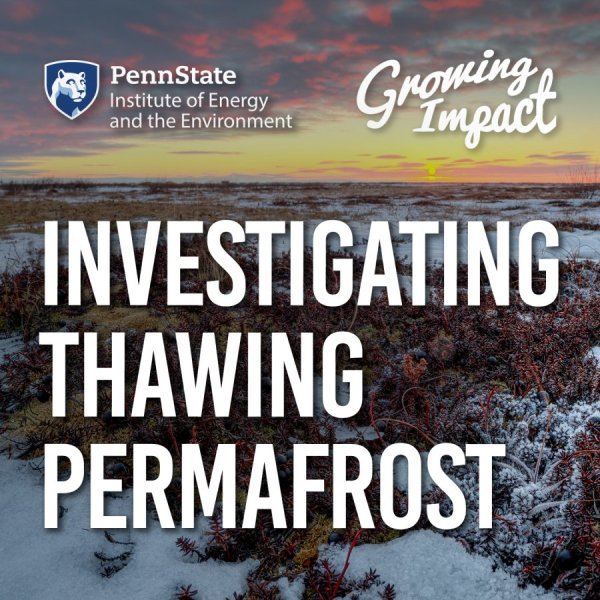Interdisciplinary projects awarded seed grants from IEE
| psu.edu
The 2017–18 Institutes of Energy and the Environment (IEE) seed grant recipients have recently been awarded to 16 groups of interdisciplinary researchers at Penn State. This year nearly $350,000 have been awarded to more than 40 researchers in five colleges at University Park as well as at four campuses.
Presence, persistence of estrogens in vernal pools an emerging concern
| news.psu.edu
Estrogens in treated wastewater that find their way into temporary wetlands known as vernal pools persist for weeks or even months, according to researchers, who suggest that persistence may have implications for these critical aquatic habitats.
Data driven dialogue: Scientists bring groups together on water quality concerns
| news.psu.edu
Shale Network, a team of scientists studying water quality around Marcellus Shale drilling in Pennsylvania, has spent the last six years fostering a dialogue between concerned citizens, watershed groups, government regulators and representatives from large energy companies around water quality data in the state.
Brandywine professor uses NSF grant to tell the stories behind earth science
| psu.edu
Laura Guertin, professor of earth science at Penn State Brandywine, is in the business of asking questions — and her most recent inquiry launched a new, creative project to help more people understand the natural world.
New desalination method offers low-energy alternative to purify salty water
| psu.edu
Providing safer drinking water to those in need may be a little easier. According to Penn State researchers, a new desalination technique is able to remove salt from water using less energy than previous methods.
The travel industry has sparked a backlash against tourists by stressing quantity over quality
| theconversation.com
At many popular destinations, residents are protesting against crowding, rowdy visitors and low wages. With some research, travelers can use their visits to enrich host areas instead of harming them.
The woman who loves the gunk on Neanderthal teeth
| cosmosmagazine.com
Laura Weyrich wanted to be a GP, but switched paths when she discovered the predictive power of microbiology. She talks to Geetanjali Rangnekar.
Partnership celebrates global synergy, accomplishments at joint energy workshop
| psu.edu
Members of the Penn State – Dalian Joint Center for Energy Research (JCER), a partnership between Penn State and Dalian University of Technology (DUT), one of the top research universities in China in energy and chemical engineering, met on campus recently to discuss ongoing research and collaboration initiatives and progress made in advancing clean energy research.
A curious quirk brings organic diode lasers one step closer
| psu.edu
Since their invention in 1962, semiconductor diode lasers have revolutionized communications and made possible information storage and retrieval in CDs, DVDs and Blu-ray devices. These diode lasers use inorganic semiconductors grown in elaborate high vacuum systems. Now, a team of researchers from Penn State and Princeton University have taken a big step toward creating a diode laser from a hybrid organic-inorganic material that can be deposited from solution on a laboratory benchtop.
Public health researcher issues dire warning about ethane cracker
| alleghenyfront.org
The ethane cracker will bring 600 permanent jobs, but a researcher warns of impacts to air quality and health of residents nearby the future facility.
Penn State launches new cancer biology program
| psu.edu
Penn State is launching a new program dedicated to cancer biology. The program will focus on the molecular, cellular and translational aspects of cancer.
Field conference helps write the book on Pennsylvania geology
| psu.edu
The 82nd annual Field Conference of Pennsylvania Geologists was held in October at Penn State. Professional geologists from across the state traveled to learn about the latest geology research happening in the state.













